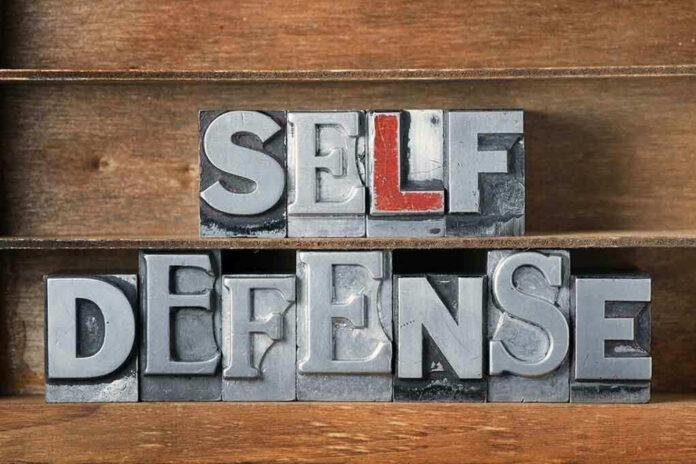
In a stunning verdict, a New York City jury has acquitted a CVS clerk of manslaughter charges after he fatally stabbed a violent vagrant in self-defense, igniting debate over self-defense rights and prosecutorial judgment.
At a Glance
- Scotty Enoe, a CVS clerk, was acquitted after stabbing a homeless man in self-defense.
- The incident highlights tensions over prosecutorial discretion in self-defense cases.
- Enoe’s case echoes other high-profile self-defense trials in NYC.
- Critics question DA Alvin Bragg’s handling of such cases amid public safety concerns.
New York Jury Delivers Acquittal in High-Profile Self-Defense Case
Scotty Enoe, a 48-year-old former CVS clerk, recently walked free from a Manhattan courtroom, acquitted of manslaughter charges after a jury found he acted in self-defense during a violent altercation. Enoe faced prosecution for the fatal stabbing of Charles Brito, a 50-year-old homeless man with a history of violence, during an incident in July 2023. Enoe claimed Brito attacked him and threatened his coworkers, forcing him to defend himself. This verdict comes after nearly two years of legal battles and public scrutiny.
Hero CVS clerk slams DA Alvin Bragg for charging him in self-defense stabbing of violent vagrant https://t.co/rnlroAS7XG pic.twitter.com/eaYX0rB90c
— New York Post (@nypost) July 28, 2025
Enoe’s acquittal is a significant moment in ongoing debates over self-defense rights for retail workers. The case, reminiscent of the Jose Alba incident in 2022, has intensified discussions about the balance between prosecuting violence and recognizing legitimate self-defense claims. The jury’s decision was seen by many as a rebuke of Manhattan DA Alvin Bragg’s prosecutorial discretion, especially regarding self-defense situations involving retail workers.
Prosecutorial Discretion Under Fire
Manhattan District Attorney Alvin Bragg faced criticism for his office’s decision to prosecute Enoe. Prosecutors alleged that Enoe’s actions were acts of revenge rather than self-defense. Enoe, supported by his new employer, Big Geyser, and a significant portion of the public, argued that the stabbing was a necessary act to protect himself and his colleagues. The jury’s not-guilty verdict has renewed scrutiny over Bragg’s handling of self-defense cases, particularly as he gears up for his re-election campaign amid mounting public safety concerns.
Bragg’s office maintained that the prosecution was justified, but the public sentiment appears divided. Many argue that prosecuting retail workers who defend themselves against violent attackers could deter them from taking necessary action in dangerous situations. However, others worry about the potential for excessive force being used in non-lethal confrontations.
Public and Media Influence
The media and public opinion played considerable roles in shaping the discourse around Enoe’s trial. Public figures and jurors, like Adriana Corben, openly expressed support for Enoe’s acquittal, emphasizing his right to self-defense. Enoe himself expressed relief and frustration, criticizing the prosecutors for putting him through a two-year ordeal. The case has become a flashpoint in the broader debate about crime and public safety in urban environments, with retail settings becoming battlegrounds for these discussions.
Enoe’s trial has highlighted the dilemmas faced by unarmed retail workers who find themselves confronted by violent individuals, often with no immediate backup. The verdict may embolden other workers to defend themselves, but it also raises concerns about potential escalations in violence, especially in cities like New York, which have seen a rise in retail thefts and violent incidents involving the homeless or mentally ill.
Long-Term Implications for Self-Defense and Retail Work
Enoe’s case is likely to have lasting implications for policies and attitudes toward self-defense in retail environments. Retailers may push for clearer guidelines and security protocols, while prosecutors might face pressure to exercise more discretion in similar cases. The broader public debate about safety, homelessness, and justice reform continues, with the Enoe case serving as a potent symbol of the complexities involved.
The acquittal underscores a critical moment in the ongoing conversation about how to balance the rights of individuals to defend themselves with the need to maintain public safety and order. As the situation evolves, policymakers, legal experts, and the public will need to navigate these challenges to ensure fair and just outcomes for all involved.












